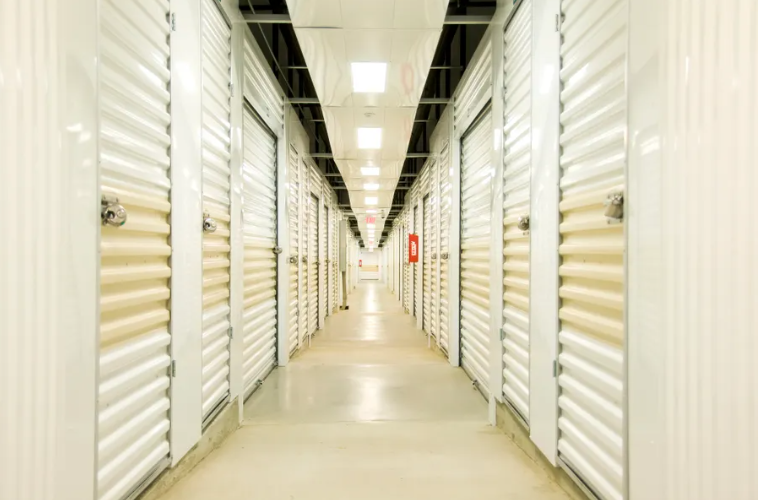How To Find the Right Self-Storage Unit for Your Needs
Self-storage units offer an affordable, secure solution for storing personal, business, and commercial items. People commonly use storage units to temporarily store belongings during a move. Other reasons for using self-storage include downsizing, storing holiday and seasonal items, and long-term storage for big things like boats and RVs. While you might assume that self-storage is costly, there are affordable options. With an online search, you can find many local storage companies offering deals right now.

Advantages of Self-Storage
Self-storage is a solution for numerous storage challenges, such as:
- Reducing clutter: Store items like old magazines, your children’s preschool artwork, or cherished baby clothes in a storage unit to keep clutter in check. Gardening equipment and seasonal tools can be stored to create extra garage space.
- Archiving business files: Storage units can hold files that must be retained for several years, like tax returns or medical receipts, freeing up valuable office space.
- Cost-effectiveness: Storing overflow in a storage unit allows you to remain in your current home instead of relocating to a bigger, more expensive place.
- Maximizing limited living space: In small living spaces like lofts or efficiency apartments, sports equipment, household goods, and vehicles can be stored in a storage unit. Seasonal clothing can be kept in a climate-controlled storage unit to alleviate closet congestion.
- Affordable parking solutions: In large cities where parking is expensive or scarce, a car can be stored at a nearby storage facility instead of renting garage space.
- Downsizing assistance: When moving from a family home to a retirement home, store furnishings and memorabilia in a storage unit.
- Flexibility for hobbyists: Storage units provide space for expanding collections or rotating items within the collection for display, cataloging, or active engagement.
- Storage for interior decorators: Designers often store items for clients who are remodeling or moving. Large items like furniture, lamps, and carpets can be housed until clients are ready to receive them.1
Considering Amenities
When choosing a storage unit, several factors should be considered. An experienced staff at a storage facility can help you determine the correct size and type of unit for your needs. Here are some things to keep in mind when selecting a self-storage unit.
- Size: Units range from document lockers to those that can accommodate the contents of a four- or five-bedroom home. Staff can help estimate the number of boxes and determine if climate control is necessary based on the quantity and types of items you have.
- Security features: Ensure the facility has fencing, security lighting, 24-hour video monitoring, security personnel, and controlled access.
- Climate Control: For items sensitive to temperature and humidity fluctuations, like electronics, artwork, or wooden furniture, a climate-controlled unit is essential. Understand the difference between climate-controlled and standard units, and assess if you require climate control for your belongings.
- Accessibility: Units should be accessible from either the outside or within a building. Check if the facility has loading docks for interior units and if loading carts and dollies are available free of charge.
- Pest Control: Inquire about the facility’s pest control measures to ensure your items remain in good condition during storage. Regular pest control treatments can help prevent damage from rodents or insects.
- Vehicle storage: Boats, campers, and cars can be stored in larger units or in fenced and gated covered outside parking spaces provided by many facilities.
- Payment options and discounts: Consider payment methods, such as major credit cards, cash, and checks, and if online or automatic withdrawal payments are accepted. Inquire about discounts for long-term contracts.
- Access Hours: Consider the facility’s access hours, especially if you need to retrieve items frequently or during non-business hours. Some facilities offer 24-hour access, while others may have restricted hours.2
Finding the Right Self-Storage Option for You
You’ll want to research facilities to find the one that best suits you. Location is crucial since you won’t want to travel far to access your storage unit. Once you’ve found possibilities, browse each company’s website for information on payment convenience, unit availability, service terms, and rate transparency.
Contact the staff to discuss your requirements. They should be attentive and professional. It’s generally a good idea to visit the facility in person to confirm that it matches the description provided. Inspect the security measures, examine the units, and note the office hours.
Before signing, read the rental agreement thoroughly. Ensure you understand liability issues, payment terms, and insurance.3 Once you are satisfied, set a move-in date and enjoy the benefits of a clutter-free, well-organized home or office. Taking some time to explore nearby self-storage facilities can help you find the right option for you.